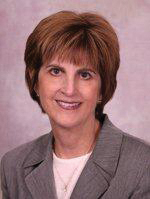A program to increase the number of registered nurses (RNs) passing the gerontology certification exam and becoming nationally certified as gerontological nurses (RN-BC) has proven effective in its two-year pilot phase, and is now being rolled out nationally to providers as an online offering, according to Gero Prep Course sponsors at the University of Nebraska Medical Center College of Nursing.
Only around 1 percent of RNs currently have the national certification, a number that is woefully low and counterproductive to the skilled nursing sector, says Catherine Bevil, RN, EdD, professor and director of continuing education and evaluation at the college and administrator of the Gero Prep Course program.
 “If a huge percent of nurses become certified, there will be a huge payoff for providers,” says Bevil. She notes that in addition to increasing the knowledge of the RNs about their field, the nurses who become certified stick with their jobs, cutting dramatically the nurse turnover rate for facilities.
“If a huge percent of nurses become certified, there will be a huge payoff for providers,” says Bevil. She notes that in addition to increasing the knowledge of the RNs about their field, the nurses who become certified stick with their jobs, cutting dramatically the nurse turnover rate for facilities.
The program just ended a two-year pilot funded by the Robert Wood Johnson Foundation in which the latest results showed 98 percent of the 100 nurses participating got certified by the American Nurses Credentialing Center (ANCC).
Vetter Health Services, a major player in the Gero Prep pilot, saw its own certifications rise to 43 percent by offering the course to its RNs.
Overall, Bevil says that facilities that participated in the pilot saw RNs raise their skill level, professionalism, job satisfaction, and retention. In addition, the facilities saw quality care elevated and the fostering of long-term operations success and care continuity.
The result is that RNs learn how to communicate better with older adults as individuals in therapeutic ways, focus on the role of the expert gerontological nurse as the leader of the nursing care team and collaborator with other team members, and prepare for and pass certification, she adds.
Now that the pilot program is complete, the Gero Prep Course is being offered to providers directly for $400 per nurse. The program is not being marketed directly to nurses. Bevil says the process to become certified is expensive for individual nurses, with not only the $400 for the course, but the $395 cost for the actual certification exam. However, the certification is for five full years, and the costs are more than offset for providers looking to bolster their nursing staff, she says.
“Certified nurses have fewer adverse events, like falls, and turnover is much less. When an RN leaves, it costs way more than a year of salary to make up for that,” Bevil says.
The American Health Care Association/National Center for Assisted Living is partnering to market the Gero Prep Course to its members.